VIRTUAL ACCESS TO THE SpliTech 2021 Conference
SpliTech 2021 Conference will be held in Hybrid form – live in the hotel Elaphusa, Bol (island of Brač), Croatia, with virtual access through the Whova platform. To get the best experience possible for SpliTech we advise you to:
Video instructions for presenting on SpliTech 2021 can be found on the following link: https://whova.com/pages/whova-speaker-guide/?source=ems
Entering Croatia and returning during COVID-19
Valuable information and the latest update about entering Croatia and returning during COVID-19 can be found on the following link: https://www.bluesunhotels.com/en/content/entry-croatia-covid-2021

University of Split (FESB) is organizing 4-day scientific/professional/industry conference that will take place in Split and Bol (island of Brac), Croatia, together with virtual access to conference (hybrid conference), September 8-11, 2021. Participants are encouraged to submit proposals related to the fields of the topics: IoT, Smart Cities, Energy and Health.
Important dates
FULL PAPER SUBMISSION:
May 10, 2021
EXTENDED TO:
May 25, 2021
FINAL EXTENSION:
June 01, 2021
NOTIFICATION OF ACCEPTANCE:
July 5, 2021
CAMERA READY PAPER:
July 25, 2021

PETAR SABEV VARBANOV
General co-chair

DIEGO LOPEZ DE IPIÑA GONZALEZ DE ARTAZA
General co-chair

NUNO VASCO LOPES
Publication chair

DIEGO CASADO MANSILLA
Doctoral symposia chair
Roko Andričević, University of Split, Croatia
Muslum Arici, Kocaeli University, Turkey
Luigi Atzori, University of Cagliari, Italy
Tamara Bajc, University of Belgrade, Serbia
Frano Barbir, University of Split, Croatia
Mateo Bašić, University of Split, Croatia
Zoran Blažević, University of Split, Croatia
Flaminio Borgonovo, Politecnico di Milano, Italy
Alessandro Bramanti, STMicroElectronics Lecce, Italy
Ivona Brandić, Vienna University of Technology, Austria
Luca Catarinucci, University of Salento, Italy
Alexander Cheng, University of Mississippi, USA
Y.P. Chiu Chaoyang, University of Technology, Taiwan
Lucio Ciabattoni, Università Politecnica delle Marche, Italy
Tomazs Cholewa, University of Lublin, Poland
Risto Ciconkov, University Ss Cyril and Metdhoius, Macedonia
Riccardo Colella, University of Salento, Italy
Ivica Crnković, Chalmers University, Sweden
Inigo Cuinas, University of Vigo, Spain
Mario Cvetković, University of Split, Croatia
Vedrana Cvitanić, University of Split, Croatia
Stipo Čelar, University of Split, Croatia
Duje Čoko, University of Split, Croatia
Ivo Čolak, Univeristy of Mostar, Bosnia and Herzegovina
Nedijb Djilali, University of Victoria, Canada
Vicko Dorić, University of Split, Croatia
Pasquale Dottorato, LAB ID Bologna, Italy
Khalil El Khamlichi Drissi, Blaise Pascal University, France
Natalija Filipović, University of Split, Croatia
Rajit Gadh, University of California Los Angeles (UCLA) USA
Mirela Galić, University of Split, Croatia
Jose Vicente García Ortiz, University of Florida, Spain
Tonko Garma, University of Split, Croatia
Giuseppe Ghisa, Istituto Poligrafico e Zecca dello Stato (IPZS), Italy
Efrosni Giama, Aristotle University of Thessaloniki, Greece
Blaž Gotovac, University of Split, Croatia
Hrvoje Gotovac, University of Split, Croatia
Sven Gotovac, University of Split, Croatia
Vera Gradišnik, University of Rijeka, Croatia
Tomislav Grgić, University of Zagreb, Croatia
Alen Harapin, University of Split, Croatia
Carles Anton Haro, CCTC, Spain
Željko Hećimović, University of Split, Croatia
Adnan Ibrahimbegović, Ecole Normale Superieure de Cachan, France
Damir Jakus, University of Split, Croatia
Antonio Jara, University of Applied Sciences Western Switzerland (HEVS – HES-SO) & HOP Ubiquitous, Switzerland
Maro Jelic, University of Dubrovnik, Croatia
Danijela Kalibovic Govorko, University of Split, Croatia
Alain Kassab, University of Central Florida, USA
Önder Kizilkan, Suleyman Demirel University, Turkey
Branko Klarin, University of Split, Croatia
Jiri Jaromir Klemes, Brno University of Technology, Czech Republic
Sandra Kostić, University of Split, Croatia
Ivica Kozar, University of Rijeka, Croatia
Jakov Krstulović Opara, University of Split, Croatia
Mario Kušek, University of Zagreb, Croatia
Damir Lazarević, University of Zagreb, Croatia
Chew Tin Lee, Universiti Teknologi, Malaysia
Kristian Lenić, University of Rijeka, Croatia
Alfiero Leoni, University of L’Aquila, Italy
Xiaohua Liu Tsinghua, University, China
Jaime Lloret Mauri, Polytechnic University of Valencia, Spain
Nuno Vasco Lopes, University of Minho, Portugal
Dino Lovrić, University of Split, Croatia
Željan Lozina, University of Split, Croatia
Rino Lucić, University of Split, Croatia
Luca Maintetti, University of Salento, Italy
Herbert Mang, Vienna University of Technology, Austria
George Manos, Aristotle University of Thessaloniki, Greece
Ivan Marasović, University of Split, Croatia
Sven Maričić, UniPu/Science-Technology Institute VISIO, UniRi/MedRi, Croatia
Snježana Mardešić, University of Split, Croatia
Gaetano Marrocco, Universita’ di Roma “Tor Vergata”, Italy
Maja Matijašević, University of Zagreb, Croatia
Gianluca Mazzini, University of Ferrara & LepidaSpA, Italy
Massimo Merenda, Mediterranean University of Reggio Calabria, Italy
Željka Milanović, University of Pula, Croatia
Predrag Miščević, University of Split, Croatia
Tonći Modrić, University of Split, Croatia
Marina Mongiello, Politecnico di Bari, Italy
Tariq Muneer, Edinburgh Napier University, UK
Andreas Ochsner, Griffith University, Australia
Roger Owen, Swansea University, United Kingdom
Joško Ožbolt, University of Stuttgart, Germany
Paolo Paolini, Politecnico di Milano, Italy
Vladan Papić, University of Split, Croatia
Claudio Pastrone, Istituto Superiore Mario Boella (ISMB), Italy
Luigi Patrono, University of Salento, Italy
Vesna Pekic, University of Split, Croatia
Lucia Pepa, Università Politecnica delle Marche, Italy
Mato Perić, University of Zagreb, Croatia
Toni Perković, University of Split, Croatia
Matteo Petracca, Scuola Superiore Sant’Anna of Pisa, CNIT, Italy
Stefano Pieretti, Instituto Superiore di Sanita Rome, Italy
Ivana Podnar Žarko, University of Zagreb, Croatia
Vedran Podobnik, University of Zagreb, Croatia
Dragan Poljak, University of Split, Croatia
Petar Popovski, Aalborg University, Denmark
Vladan Prodanović, Univeristy of British Columbia, Canada
Farhad Rachidi, Swiss Federal Institute of Technology, Switzerland
Joško Radić, University of Split, Croatia
Antonio Rizzi, University of Parma, Italy
Joel J.P.C. Rodrigues, University of Beira Interior, Portugal
Maja Rogić Vidaković, University of Split, Croatia
Luis Rojas-Solórzano, Nazarbayev University, Kazakhstan
Michele Ruta, Technical University of Bari, Italy
Petar Sarajčev, University of Split, Croatia
Nicoletta Saulig, University of Pula,Croatia
Dainel Rolph Schnieder, University of Zagreb, Croatia
Bernhard Schrefler, University of Padova, Italy
Pritee Sharma, Indian Institute of Technology Indore, India
Benson Shing, University of California San Diego, USA
Čedomir Stefanović, Aalborg University, Denmark
Vincenzo Stornelli, University of L’Aquila, Italy
Silvestar Šesnić, University of Split, Croatia
Petar Šolić, University of Split, Croatia
Antonio Tadeu, University of Coimbra, Portugal
Kumar Tamma, University of Minnesota, USA
Theodoros Theodosiou, Aristotle University of Thessaloniki, Greece
Giuseppe Marco Tina, University of Catania, Italy
Sergey Tkachenko, Otto-von-Guericke University, Germany
Anica Trp, University of Rijeka, Croatia
Boris Trogrlić, University of Split, Croatia
Robert Turrall, Turrall Consulting, Switzerland
Umit Unver, Yalova University, Turkey
Antonio Vilei, STMicroElectronics Lecce, Italy
Christos Verikoukis, CTTC, Spain
Frane Vlak, University of Split, Croatia
Dejan Vukobratović, University of Novi Sad, Serbia
Katarina Vukojević, University of Split, Croatia
Da Yan, Tsinghua University, China
Jesus Alonso Zarate, CCTC, Spain
Bin Zhao, Tsinghua University, China
Tea Žakula, University of Zagreb, Croatia
Zlatko Živković, University of Split, Croatia
Petar Šolić, (Conference Secretary), University of Split, Croatia
Ana Čulić, (Conference Secretary), University of Split, Croatia
Toni Perković, University of Split, Croatia
Nikolina Batarelo, University of Split, Croatia
Duje Čoko, University of Split, Croatia
Andrija Džimbeg, University of Split, Croatia
Filip Grubišić Čabo, University of Split, Croatia
Ante Kriletić, University of Split, Croatia
Josip Maras, University of Split, Croatia
Ivan Marasović, University of Split, Croatia
Tea Marasović, University of Split, Croatia
Sandro Nižetić, University of Split, Croatia
Željko Penga, University of Split, Croatia
Ivan Pivac, University of Split, Croatia
Nikolina Pivac, University of Split, Croatia
Marina Prvan, University of Split, Croatia
Ivan Tolj, University of Split, Croatia

SpliTech 2021 Conference will be held in Bluesun Hotel Elaphusa, Bol and on Faculty of Electrical Engineering, Mechanical Engineering and Naval Architecture (FESB), Split where special full-day event – IoT day will take place.
Options for trip from Split to Bol:
1) Fast boat directly to Bol (Jadrolinija, Krilo)
2) Ferry from Split to Supetar and then take the bus from Supetar to Bol
*Nearest Airports:
Split Airport
Bol Airport


Petar Sabev
Varbanov
“Minimisation of the Energy Resource Demands and Environmental Footprints for Industrial and Urban Symbiosis using the Circularity and Exergy Profit Concepts”

Fabrizio
Ascione
“Energy Performance of Buildings: improvements, limits and future perspectives during the last twenty years of energy and sustainability policies”

Andrea
Sciarrone
“When Drones meet Signal Processing: New Scenarios, Open Problems and Future Challenges”

Abdul Hai
Alami
“Can compressed air energy storage (CAES) compete with battery storage for renewable energy resources?”
KEYNOTE SPEAKER

Sumi
Helal
Or the Trivial Role of Powering
Serious IoT Scenarios”


Organizers: Branko Klarin and Goran Gašparović, University of Split, Croatia
Special Session on Aerotech and Aerospace Applications
is focusing on wide aspects and applications of primarily aerotech and aerospace technologies and their applications in various industrial and scientific use. Download the special session flyer here.
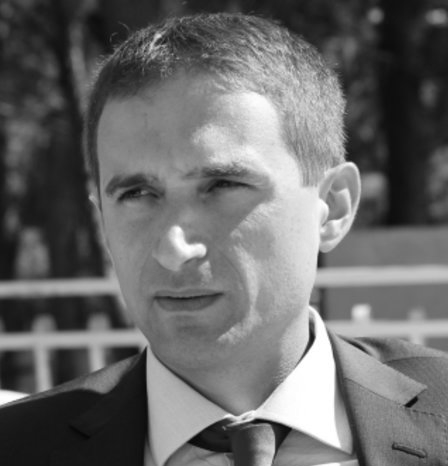 Organizer: Luigi Patrono, University of Salento, Italy
Organizer: Luigi Patrono, University of Salento, Italy
IoT Symposium
Discussing recent academic advances in the area of the Internet of Things and Embedded systems interesting for both academia and industry. Download IoT Symposium flyer here.
- Symposiom includes Special Session on Artificial Intelligence and Deep Learning applied to Smart Environments (Download flyer)
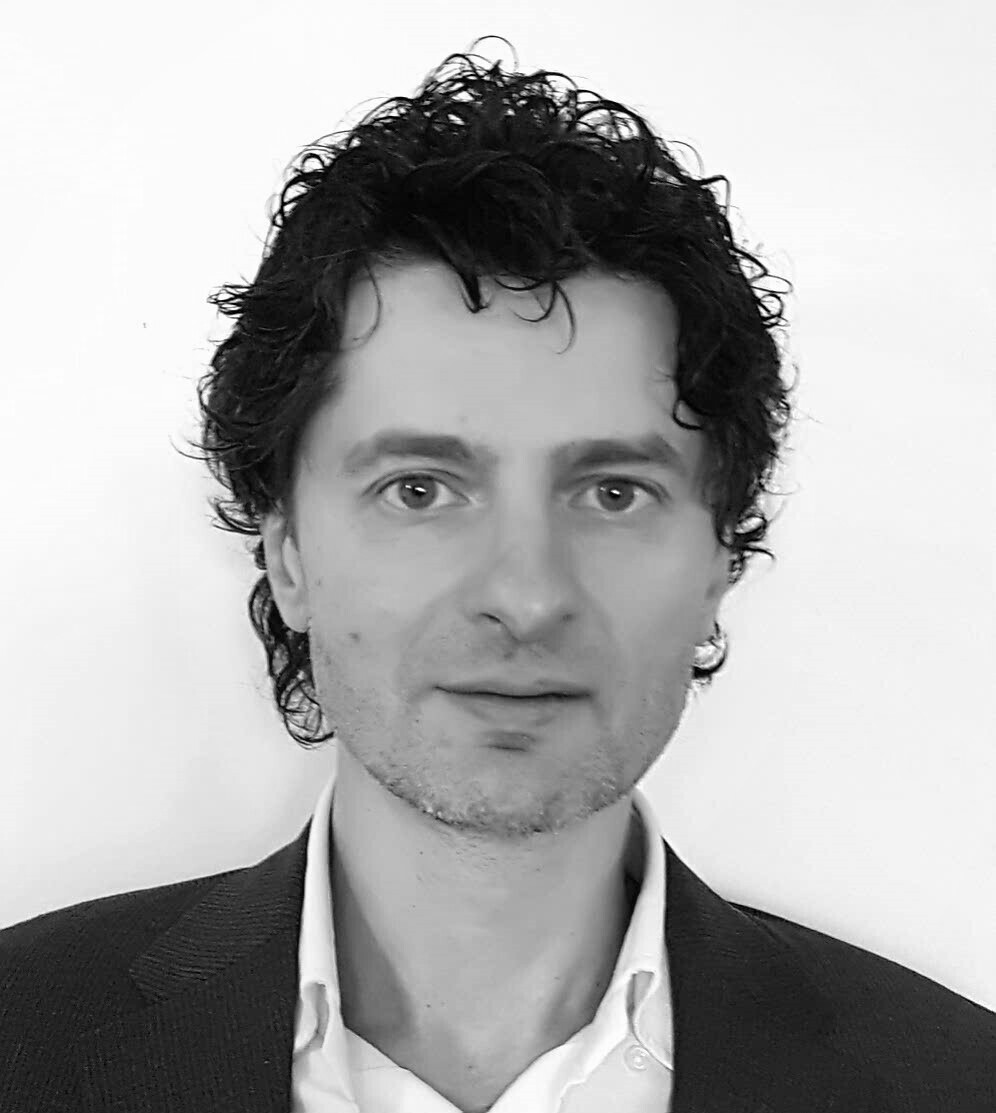 Organizer: Luca Catarinucci, University of Salento, Italy
Organizer: Luca Catarinucci, University of Salento, Italy
RFID Symposium
RFID is one of the technologies mostly enabling the IoT, supporting plenty of multidisciplinary applications and attracting a rapid growing number of professionals. Download the RFID Symposium flyer here.
Symposium includes 3 special sessions:
Smart and efficient cooling techniques for photovoltaic technologies
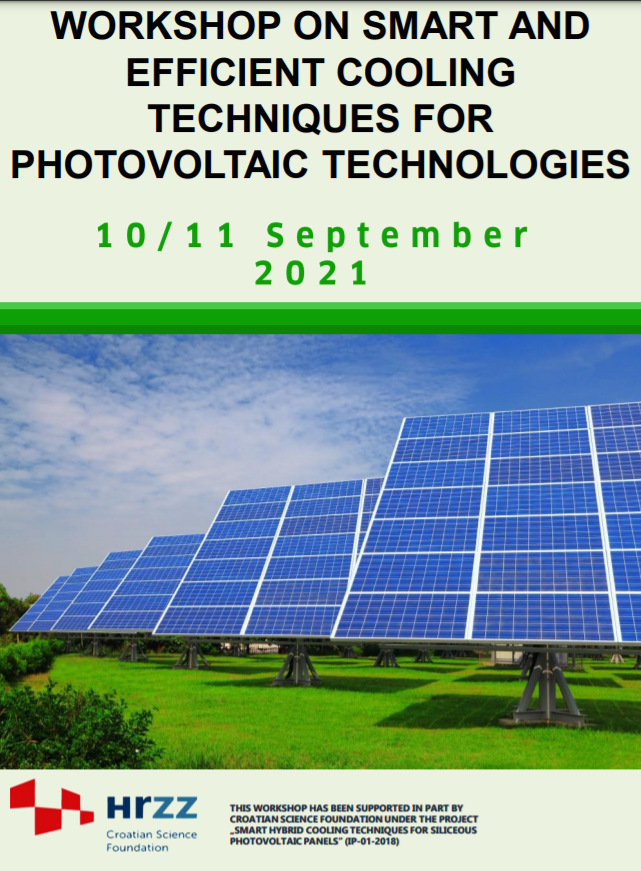
organizer: Sandro Nižetić, University of Split, Croatia
International workshop is focused on the recent advancements in the field of the smart and efficient cooling techniques for photovoltaics as part of the ongoing research project funded by Croatian Science Foundation. Different important topics would be discussed and that are related to the smart cooling systems of the silicon-based photovoltaics with main emphasis on techno-economic, environmental and modelling aspects. Several internationally recognized researchers and project collaborators will present and discuss specific topics linked with ongoing research on the project (Smart and hybrid cooling techniques for siliceous photovoltaic panels-IP-01-2018-2814.). (Download flyer)
PANTERA nano-workshop: “Boosting the R&I activity on Smart Grid (SG) Technologies”
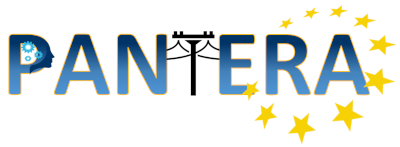
September 10, 2021
https://pantera-platform.eu/dont-miss-pantera-and-supeera-joint-workshop-at-splitech-conference/
Coordinator: FOSS Research Centre for Sustainable Energy, University of Cyprus
PAN European Technology Energy Research Approach (PANTERA) is a EU H2020 project aimed at setting up a European forum composed of Research & Innovation stakeholders active in the fields of smart grids, storage and local energy systems, including policy makers, standardisation bodies and experts in both research and academia, representing the EU energy system (https://pantera-platform.eu/).
Within the PANTERA project, an interactive multi-functional platform is developed. This platform is called EIRIE platform which stands for European Interconnection for Research Innovation & Entrepreneurship. The EIRIE platform acts as the meeting point to all actors active in the field of energy research & innovation from all Europe. You can visit the EIRIE platform under the following link: https://ses.jrc.ec.europa.eu/eirie/en.
Croatia is an active member of EU since 1st July 2013 and actively works in the success of the energy transition objectives to achieve the declared policies for achieving the low carbon economy. However, the following areas are still a concern in achieving carbon neutrality and we would like to address them in this workshop that brings together stakeholders in the field of smart grids, storage and local energy systems:
- R&I activities in the field are weak calling for more national and European support to raise opportunities, bring closer to the wealth of EU knowledge and offer the means to address local needs with the support of the industry and broader communities.
- Enabling technologies like digitalization, storage, smart grids and reliable communications are not adequately addressed to facilitate the much-wanted transition for the effective use of emerging technologies that include distributed RES, e-mobility with smart charging and V2G attributes and demand flexibility.
- End users and citizens are not adequately empowered through codes, appropriate regulation and market instruments to build and operate effective energy management systems utilizing the emerging technologies that can grow into efficient energy communities with appropriate technologies in place to facilitate optimal use of local resources for the benefit of the citizens.
Support to the coordination of national research and innovation programmes in areas of activity of the European Energy Research Alliance (SUPEERA) is an EU H2020 project aimed at strengthening European cooperation in Research and Innovation (R&I) to realise the objectives of the SET Plan in the broader perspective of the Clean Energy Transition, to support Europe’s strategic long-term vision of becoming a climate-neutral society by 2050. SUPEERA strives to attain its goals by supporting the energy research organisations involved in the SETPlan; encouraging a stronger engagement of the EU-13 countries; improving information exchange; and making recommendations for joint actions. Moreover, it attempts to accelerate the uptake of new technologies by industry and examine the impact of EU policies in the view of bringing the SET-Plan forward in the broader context of the Clean Energy Transition.
- Download SUPEERA flyer
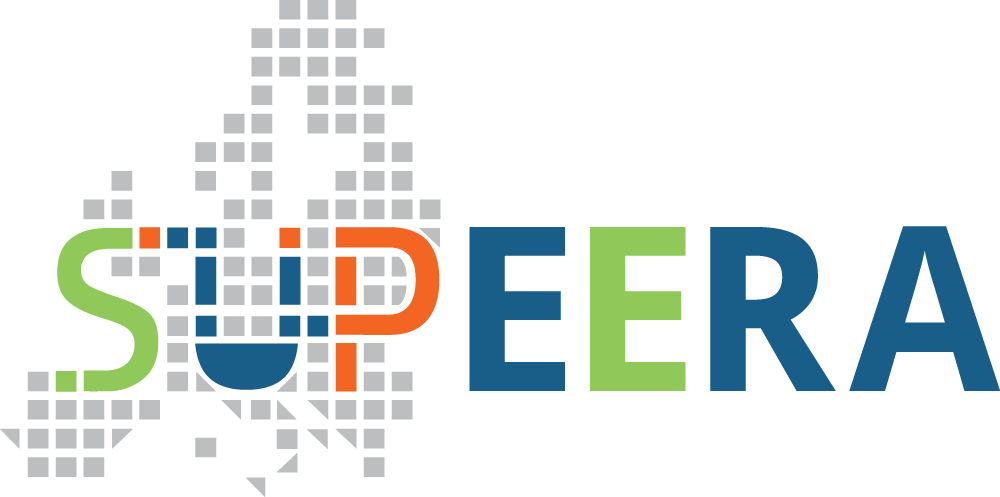
Hands-on training: AI in Focus
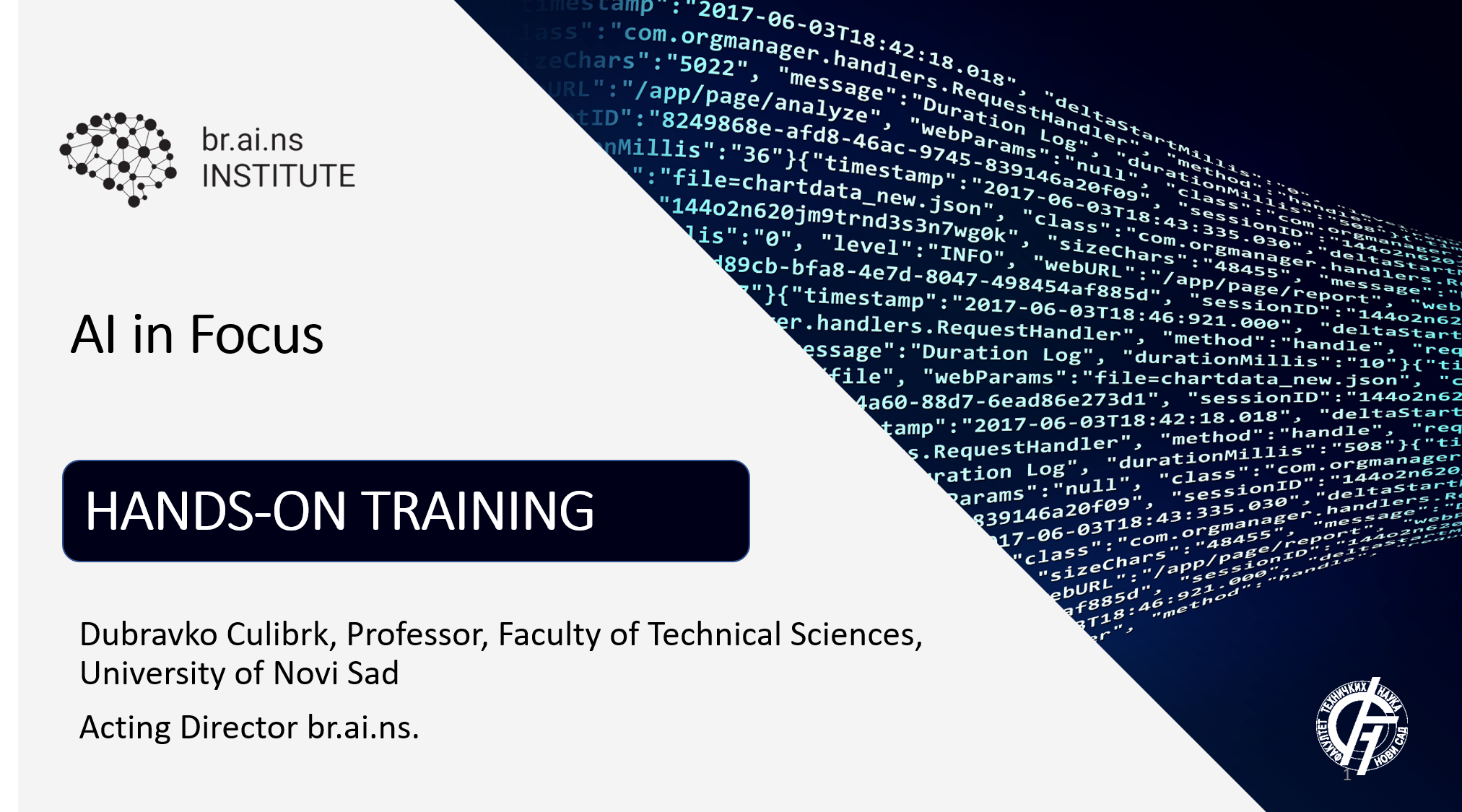
Organizer: Dubravko Culibrk, Professor, Faculty of Technical Sciences, University of Novi Sad, Acting Director br.ai.ns.
Artificial Intelligence is a revolutionary technology, with the potential to become a General-Purpose Technology and change virtually all areas of human endeavor. We’ll kick off this hands-on training session, aimed at those venturing into the field of AI for the first time, with a brief overview of the circumstances that enabled the rapid development of AI, major applications of this technology and specific requirements in terms of computing power needed to develop and deploy state-of-the-art AI technology. Attendees will then have a chance to try to deploy and train deep neural networks themselves, using the Huawei’s AI Ascend stack and major AI-development frameworks. For those wishing to continue their journey in the realm of AI, we’ll provide a curated list of free resources at their disposal.
Meeting six Editors in Chief – How to Increase your Publication Result and Success
 Speakers: Jiří Jaromír Klemeš, Sustainable Process Integration Laboratory – SPIL, NETME Centre, Faculty of Mechanical Engineering, Brno University of Technology- VUT Brno
Speakers: Jiří Jaromír Klemeš, Sustainable Process Integration Laboratory – SPIL, NETME Centre, Faculty of Mechanical Engineering, Brno University of Technology- VUT Brno
Sandro Nižetić, University of Split, Croatia
Petar Sabev Varbanov, Sustainable Process Integration Laboratory – SPIL, NETME Centre, Faculty of Mechanical Engineering, Brno University of Technology- VUT Brno
The topics to be discussed cover at least briefly: writing a potential successful scientific manuscript, selection of a right journal and their metrics, various types of paper submission, Selecting and using the right references, similarity and plagiarism, correct novelty reasoning and presentation of the proposed methods and the results, proper conclusions writing, how to handle the reviewing process, final proofing, presentation and promotion of the published paper. Examples of successful publications will be given, with analysis of the features leading to their high impacts. The Workshop is going to be followed by dedicated consultations of specific and individual features.
- Download flyer
ACADEMIA MEMBERS
€ 570
* after August 1, 2021- Access to all events
- Bag of goodies
- Gala dinner voucher
- Social events
- USB Proceedings
- Lunches and Refreshments during the conference
INDUSTRY MEMBERS
€ 570
* after August 1, 2021- Access to all events
- Bag of goodies
- Gala dinner voucher
- Social events
- USB Proceedings
- Lunches and Refreshments during the conference
STUDENT MEMBERS *
€ 370
* after August 1, 2021- Access to all events
- Bag of goodies
- Gala dinner voucher
- Social events
- USB Proceedings
- Lunches and Refreshments during the conference
* for paper registrations, applicable only if the paper is authored by students-only
- Prices are defined for live participation. In the case of a virtual conference attendance, 20 % discount will be applied
- Provided prices do not include Credit Card processing fee (3%) or Bank Transfer Costs (10 EUR)
FESB, University of Split
Rudjera Boskovica 32,
21000 Split, Croatia
splitech@fesb.hr
info@splitech.org
T. +385 21 305 632
F. +385 21 305 776
















